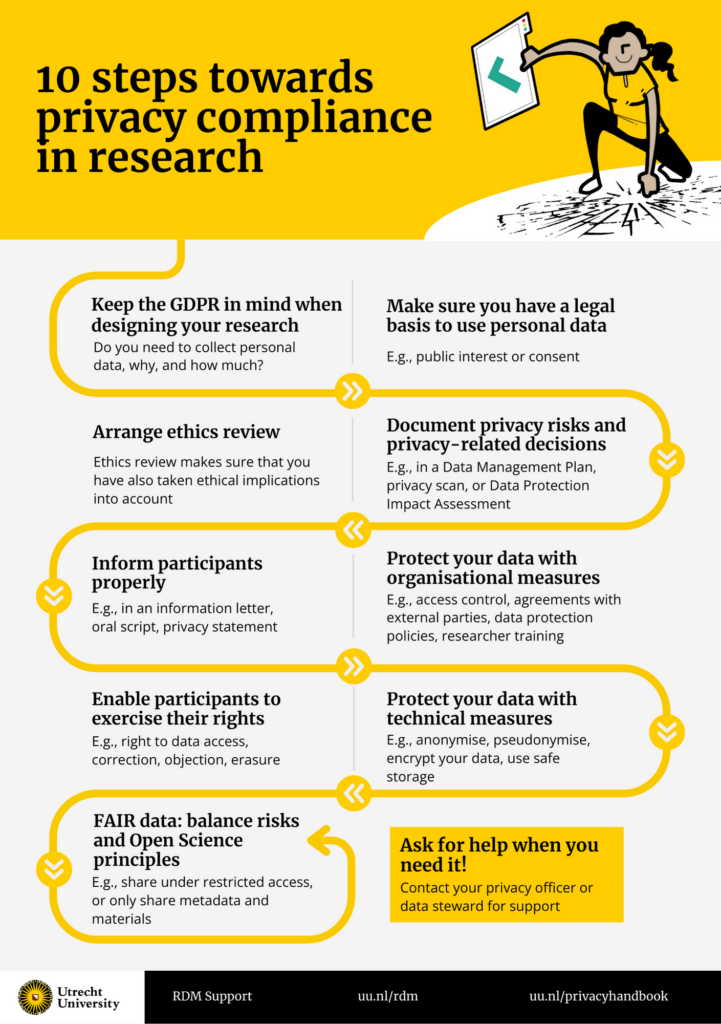As a researcher from the Faculty of Science you might process personal data within the framework of academic research. This requires that you work in accordance with current regulations and legislations, respecting research subjects’ privacy.
All projects at the Faculty of Science that process personal data must demonstrate compliance with the General Data Protection Regulation (GDPR – or AVG in Dutch).
In order to know whether and how you should comply with the GDPR in your research project, is important to understand whether you are working with personal data and what are the actions needed to ensure data is protected.
What are personal data?
Would you like to read more about what is personal data and how to asses whether your data contains personal data? Go to the UU Data Privacy Handbook
What should I do If I process personal data?
Once you have determined that you will be processing personal data, it is important to evaluate and document the GDPR compliance of your project. This will impact the way you manage data, as you will need to incorporate data protection measures across your data lifecycle. According to the characteristics of your project you may need to complete a Privacy Scan or a DPIA.

Drop-down image text
1. Keep the GDPR in mind when designing your research. Do you need to collect personal data, why and how much?
Data protection should be a key feature in the design of your research project so it is important to contact the faculty data stewards early on, preferably already in the conception or design phase of your research. We will help you review your plans and determine the appropriate strategies to protect the data so that you can conduct your research project smoothly.
The Data Privacy Handbook is a guide developed by RDM Support in collaboration with privacy and data experts at Utrecht University. It includes workflows, tools, and practical translations of the GDPR, to be used by researchers and (data) support staff within Utrecht University and beyond.
You can now take the self-paced online module “Privacy Basics for Researchers”. Through interactive content and exercises, this e-learning module gives you an essential understanding of privacy principles and practices when dealing with personal data in research.
Do you have questions or doubts or would like to plan a 1 – 1 consultation?

